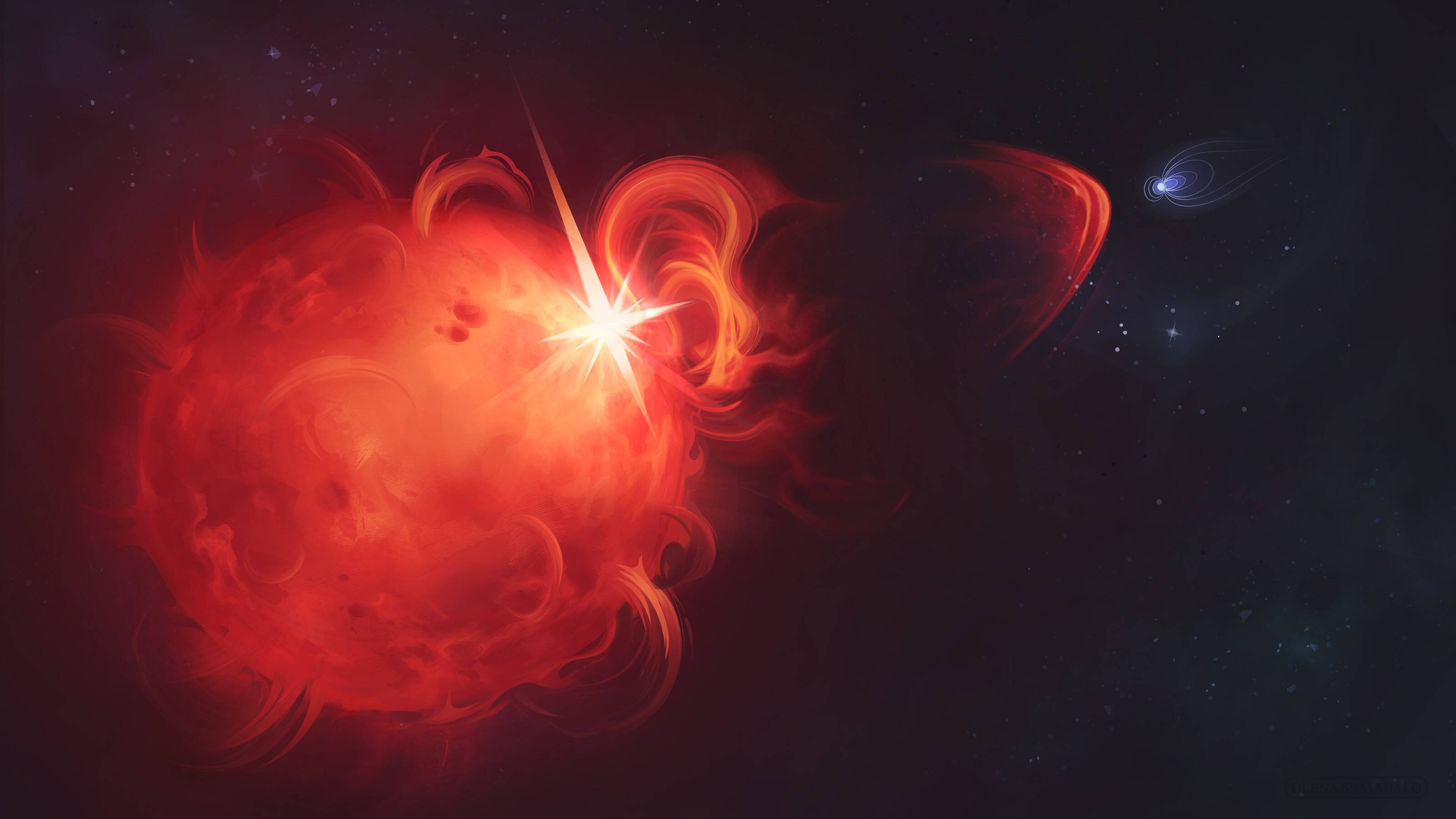
"Astronomers have made the first definitive observation of a Coronal Mass Ejection (CME) on a nearby star. CME events are a regular occurrence at our sun. Massive amounts of material are emitted and flood nearby space. Some can create the dazzling auroras seen in the sky from Earth as they interact with the magnetosphere, but they can also negatively impact space weather and disrupt spacecraft."
"The CME was determined to be moving at 2,400 km per second a speed only seen once in every 2,000 CMEs from the Sun and was both fast and dense enough to completely strip away the atmospheres of any planets closely orbiting the star. A planet's habitability for life as it is understood on Earth depends on whether or not it is situated within the star's 'habitable zone' somewhere where liquid water and an atmosphere can exist."
"The radio signal generated by the CME was detected by the Low Frequency Array (LOFAR) radio telescope. "This kind of radio signal just wouldn't exist unless material had completely left the star's bubble of powerful magnetism," said Callingham, "In other words: it's caused by a CME." The European Space Agency's (ESA's) XMM-Newton telescope was then used to determine the star's temperature, rotation, and brightness in X-ray light."
A nearby star produced the first definitive observed coronal mass ejection (CME) beyond the Sun. The CME moved at about 2,400 km per second, a velocity extremely rare among solar CMEs, and had sufficient density and speed to strip atmospheres from planets in close orbits. The event was detected in radio by the Low Frequency Array (LOFAR), indicating material escaped the star's magnetic bubble, and X-ray observations from ESA's XMM-Newton provided temperature, rotation, and brightness context. Powerful stellar CMEs can therefore undermine habitability even for planets located in nominal habitable zones.
Read at www.theregister.com
Unable to calculate read time
Collection
[
|
...
]